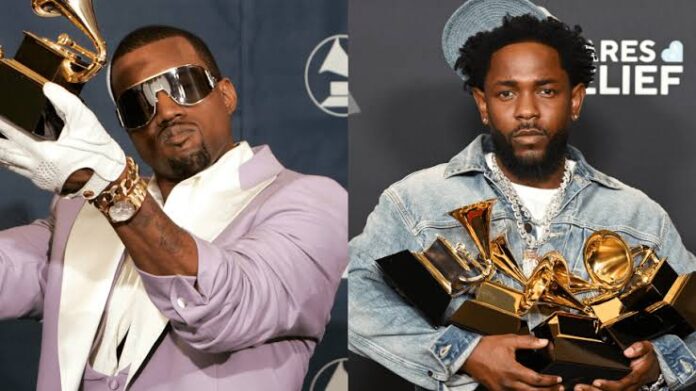In a move that has reignited longstanding debates about artistic expression and industry power struggles, Ye—formerly known as Kanye West—took to Twitter on March 17, 2025, to issue a provocative challenge to fellow rap luminary Kendrick Lamar. In a series of unapologetically bold tweets, Ye declared his disdain for Kendrick’s hit track “Not Like Us” and, in a further twist, openly pleaded for Kendrick to diss him in a public lyrical showdown. This challenge, laced with references to influential industry figures, has not only captured the attention of the hip-hop community but has also sparked a flurry of commentary across social media platforms.
At the heart of the controversy is Ye’s blunt invitation, in which he implored Kendrick to “come diss me”—a move that appears designed to blur the lines between genuine personal grievance and the theatrics that have come to define Ye’s public persona. By mentioning Lucian Grainge, the CEO of Universal Music Group, Ye hinted at deeper industry tensions, suggesting that the challenge might be more than a simple call for a lyrical battle. Instead, it raises questions about the complex dynamics between artists, record executives, and the broader power structures that govern the music industry.
The response on social media has been electric and divided. Among the voices chiming in is that of prominent hip-hop commentator DJ Akademiks, who critiqued the move by framing it as a power play—a suggestion that Kendrick, known for his measured and incisive lyricism, might be maneuvering under the influence of corporate pressures. Many fans, meanwhile, are split in their opinions. Some applaud Ye for his unabashed audacity, viewing the challenge as a refreshing break from the sanitized nature of modern celebrity feuds. Others, however, see it as a desperate bid for attention, questioning whether the latest stunt is an honest invitation for a creative exchange or merely another chapter in Ye’s long history of public provocations.
Industry insiders are watching closely, speculating that any response from Kendrick Lamar could have significant cultural implications. Given Kendrick’s reputation for deep, thoughtful lyricism and his status as one of the most respected voices in hip-hop, a diss track from him could either redefine the contours of modern rap battles or further polarize fans. The challenge also opens up a broader dialogue about the current state of rap and hip-hop—where personal grievances, competitive bravado, and business interests all intermingle in a digital age that values virality as much as authenticity.
Ultimately, Ye’s daring Twitter challenge encapsulates the enduring allure of musical rivalries. It serves as a reminder that in hip-hop, conflict is not merely a matter of personal pride but also a powerful narrative tool—a way to push boundaries, spark debate, and, at times, create art that reflects the turbulent relationship between the artist and the industry. Whether Kendrick Lamar will choose to engage remains to be seen, but the ensuing conversation has already cemented Ye’s latest stunt as a defining moment in the ongoing evolution of celebrity culture in the digital era.


